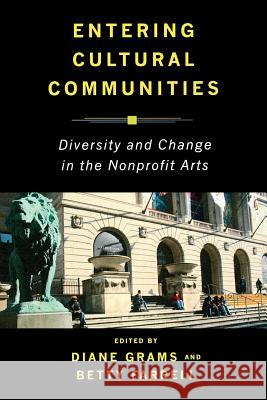Entering Cultural Communities: Diversity and Change in the Nonprofit Arts » książka
topmenu
Entering Cultural Communities: Diversity and Change in the Nonprofit Arts
ISBN-13: 9780813542171 / Angielski / Miękka / 2008 / 292 str.
Arts organizations once sought patrons primarily from among the wealthy and well educated, but for many decades now they have revised their goals as they seek to broaden their audiences. Today, museums, orchestras, dance companies, theaters, and community cultural centers try to involve a variety of people in the arts. They strive to attract a more racially and ethnically diverse group of people, those from a broader range of economic backgrounds, new immigrants, families, and youth.
The chapters in this book draw on interviews with leaders, staff, volunteers, and audience members from eighty-five nonprofit cultural organizations to explore how they are trying to increase participation and the extent to which they have been successful. The insiders' accounts point to the opportunities and challenges involved in such efforts, from the reinvention of programs and creation of new activities, to the addition of new departments and staff dynamics, to partnerships with new groups. The authors differentiate between "relational" and "transactional" practices, the former term describing efforts to build connections with local communities and the latter describing efforts to create new consumer markets for cultural products. In both cases, arts leaders report that, although positive results are difficult to measure conclusively, long-term efforts bring better outcomes than short-term activities. The organizations discussed include large, medium, and small nonprofits located in urban, suburban, and rural areas--from large institutions such as the Smithsonian, the Walker Art Center, the Museum of Fine Arts Houston, and the San Francisco Symphony to many cultural organizations that are smaller, but often known nationally for their innovative work, such as AS220, The Loft Literary Center, Armory Center for the Arts, Appalshop, and the Western Folklife Center.










